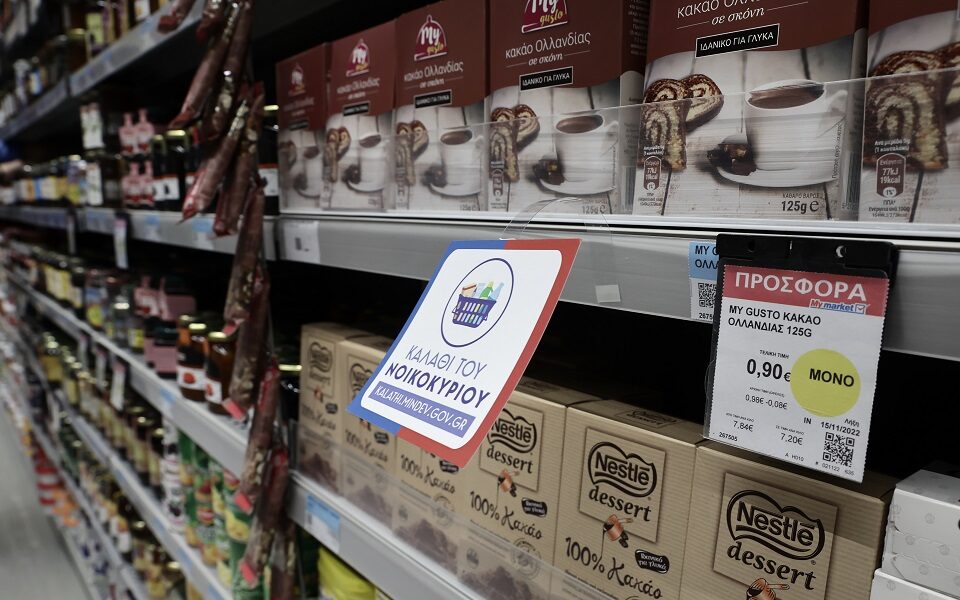A basket case of inflation policy

Inflation hits the poorest harder, a report by the European Central Bank has shown. That is because they spend a much larger percentage of their income on food and energy. Inflation is much higher for the poor than it is for the rich. In fact, the gap between the two today is the largest since 2006.
A study by the Labor Institute of the General Confederation of Greek Labor (INE GSEE) made similar findings: The minimum wage has lost 19% of its purchasing power since April; purchasing power losses this year have reached 40% for households with a monthly income of up to 750 euros, and 9-14% for those on 751-1,100 euros. The current distribution of income favors profits and hits salaried work.
This is profit inflation, and it cannot go on forever. European businesses are beginning to sense that it is only a matter of time before this inflation seeps through to wages and salaries, strengthening and extending its duration into 2023 – and that would happen to European economies with stagnant productivity and/or recession. Strikes at France’s Total Energies, Scandinavia’s SAS, Italy’s Stellantis and in Britain foreshadow just that. Greece is also moving in that direction, as the last general strike showed on Wednesday.
In this country, the cause of inflation is the excessive rate of gross profit which a large part of industry, retail commerce, import trade and wholesale businesses have gotten used to. These are profit rates that simply do not exist in other European economies where competition works properly. That is why many basic goods are more expensive in the Greek than the German store of the same retail chain. The point, then, in Greece, is not so much how to avoid increasing excessively – due to the lack of competition – profit rates (as the government seeks), but how to reduce them. In the medium and long term, it’s about getting competition to work properly. But even if such an effort were to start today (which it won’t), it would take time – and there is no time.
If something is not done immediately and the joke of the so-called “household basket” (a set of products at supermarkets protected from inflation) continues, the consequences will not be good: In a society that, after 10 years of great suffering from the economic crisis, is struggling to make ends meet, while a third of it is facing deprivation and poverty, it will be like spilling gasoline on the floor and waiting for someone to drop a match. There are also the economic consequences to consider: If inflation is not tamed, the economy’s (weak) competitiveness will suffer even more. And it will not be the unions’ fault – the government’s indifference will be to blame.
Can something be done? I shared some thoughts on the subject last Sunday. I’ll add an example: In 1995-1999, when PASOK’s Michalis Chrysochoidis was deputy trade minister, he had inherited inflation of the order of 20% and a mandate to reduce it drastically, so the country could join the Economic and Monetary Union. The Commerce Ministry and Competition Commission prepared for a fight. They studied the markets, and examined possibilities, profit margins and the peculiarities of each sector, and brought inflation down to the 3% range by implementing a specific plan. At the time, the national goal was to join the EMU; now it is to save a society. And this cannot be done with ridiculous “baskets.”





